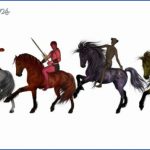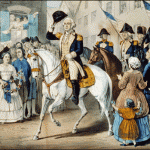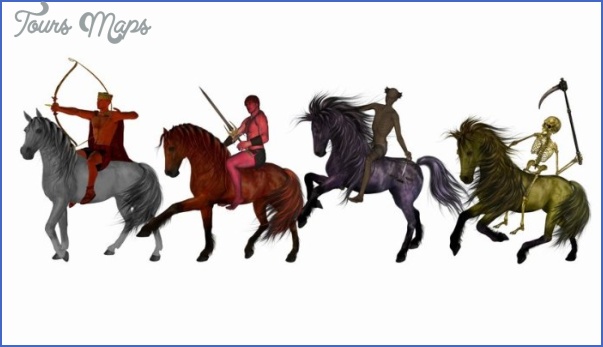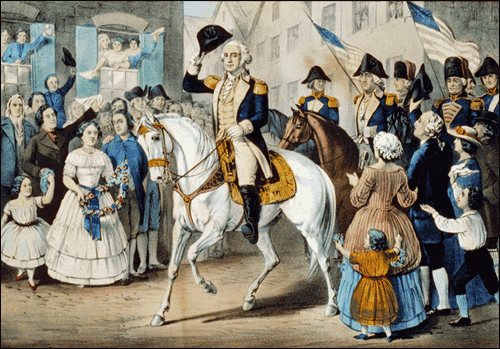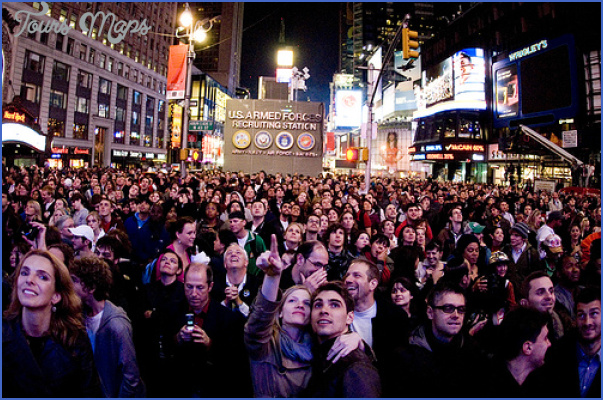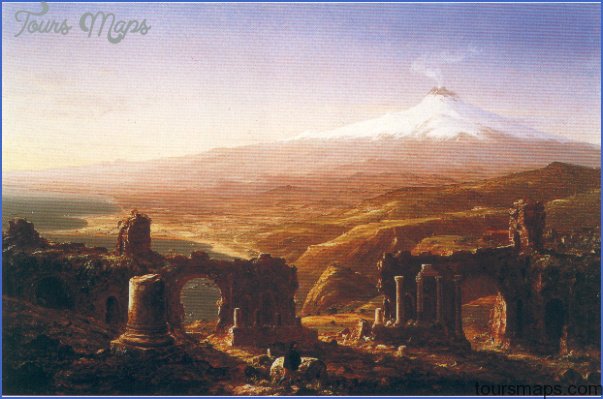REVOLUTION IN THOUGHT (1555-1648)
Unwilling to witness the fracturing of his empire, Charles V abdicated all his titles in 1555. His solution to the already present lack of unity in the Holy Roman Empire was to further divide power; his brother Ferdinand I gained control of the Austrian Habsburg lands, while his son Philip II ruled Spain and The Netherlands. Under Philip II, Spain entered its Golden Age, Siglo de Oro, becoming the greatest power in Europe. Obsessed with the necessity for Catholic reform, Phillip supported the Catholic cause in Western Europe, aiding rebellions against England’s Protestant Queen Elizabeth and removing French Protestant Huguenots from power. Spain’s troops and gold ultimately proved insufficient, though. The Spanish were driven out of The Netherlands by William of Orange in the Eighty Years’ War (1568-1648).
From 1618-1648, Germany became the battlefield of Europe, as Protestant forces asserted their independence from the Roman Catholic Church and the Holy Roman Empire during the Thirty Years’ War. The Treaty of Westphalia, signed in 1648, reinforced the Peace of Augsburg’s principle of cuius regio eius religio (whose region, his religion) and set European political geography for the next century. The havoc of religious strife had redefined the face of Europe the Holy Roman Empire was severely weakened, Spain fell from grace as Philip II’s Catholic crusade crashed in flames, Queen Elizabeth restored the Protestant church, and a Huguenot sat on the throne in France.
The late 17th century exploded with political and intellectual revolutions. England plunged into civil war, and France, under the Sun King Louis XIV, became the greatest power in Western Europe. The Scientific Revolution of the 17th century broke out of the medieval mindset and began to challenge traditional modes of thought. Descartes, Galileo, Hobbes, and Newton were among the many whose works marked the revolution, each contributing to the belief in harmony, logic, and human abilities. The popularization of scientific thought and the realization of its increasing pertinence to everyday life, medicine, and politics formed the basis for the ideas of the Age of Enlightenment.
AGE OF ENLIGHTENMENT (1688-1789)
During the Enlightenment, thinkers such as Locke, Montesquieu, Rousseau, and Voltaire made the radical proposition that reason and science, rather than a mysterious God, could reveal the truth of life. By reasoning out the universal laws of nature, they claimed, one could achieve freedom and happiness. This age’s questioning spirit also affected the conception of the state Frederick II of Prussia, Catherine the Great of Russia, and Joseph II of the Habsburg empire were monarchs known as the enlightened despots, who combined liberal reforms with measures to maintain control over peasants.
REVOLUTION IN THOUGHT 1555-1648 Photo Gallery
Maybe You Like Them Too
- Explore Nevestino, Bulgaria with this Detailed Map
- Explore Pulau Sebang Malaysia with this Detailed Map
- Explore Southgate, Michigan with this detailed map
- Explore Les Accates, France with this Detailed Map
- Explore Góra Kalwaria, Poland with this detailed map

